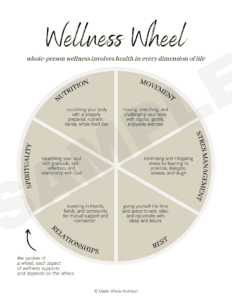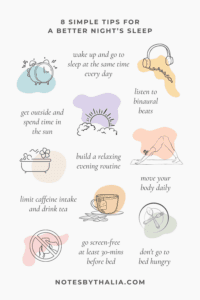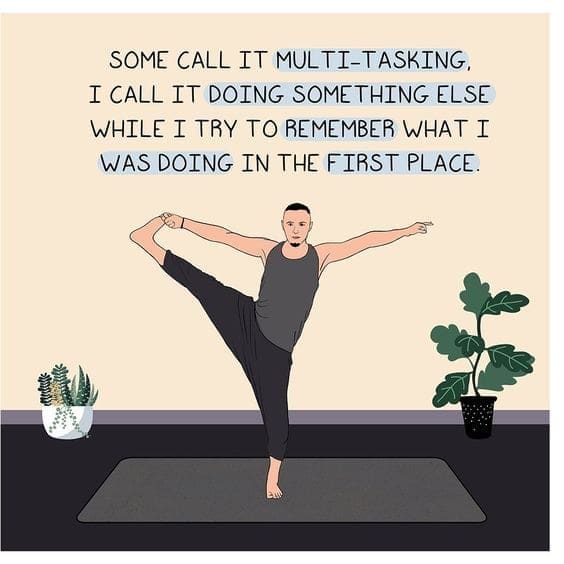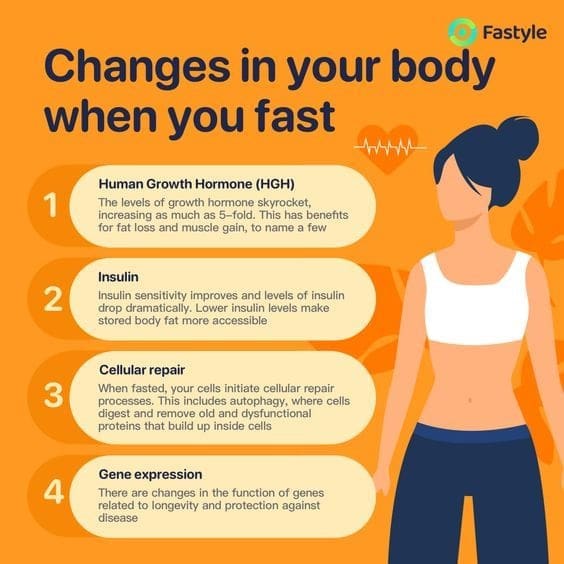Top 10 Wellness Tips for a Balanced and Healthy Lifestyle
Welcome to a world of wellness where balance and health take center stage. In today’s fast-paced and demanding world, it’s crucial to prioritize our well-being and create a harmonious lifestyle that promotes both physical and mental wellness. Are you ready to embark on a journey towards a more balanced and healthy life? Look no further! In this article, we will explore 10 essential tips to help you achieve just that. From nourishing your body with wholesome foods to finding moments of tranquillity in a chaotic world, we’ll cover it all. So, sit back, relax, and get ready to discover the keys to unlocking a vibrant and fulfilling life. Join us as we delve into the world of wellness and empower ourselves to make positive changes that will have a lasting impact. Let’s dive in and embrace a lifestyle that embraces our well-being and brings us closer to a state of true balance and vitality.
The Importance of Wellness in Maintaining a Balanced and Healthy Lifestyle
Maintaining a balanced and healthy lifestyle is not just about eating right and exercising regularly. It’s a holistic approach that encompasses all aspects of our well-being, including physical, mental, and emotional health. When we prioritize our wellness, we are better equipped to handle the challenges of daily life, reduce the risk of chronic diseases, and enhance our overall quality of life.
One of the key components of wellness is self-care. Taking time for ourselves, nurturing our bodies, and engaging in activities that bring us joy are all essential for maintaining balance. Self-care can take many forms, from indulging in a relaxing bath to practicing meditation or simply spending quality time with loved ones. By making self-care a priority, we can recharge and rejuvenate, allowing us to show up as our best selves in all areas of life.
Another important aspect of wellness is stress management. In today’s fast-paced world, stress has become a common occurrence. However, chronic stress can have a detrimental effect on our physical and mental health. Finding healthy ways to manage stress is crucial for maintaining balance and well-being. This can include practices such as deep breathing exercises, yoga, or engaging in hobbies that bring us joy and relaxation. By managing stress effectively, we can improve our overall quality of life and reduce the risk of stress-related illnesses.
In addition to self-care and stress management, wellness also involves taking care of our physical health. This includes eating a balanced diet, engaging in regular physical activity, and getting enough sleep. When we fuel our bodies with wholesome foods and stay active, we provide our bodies with the nutrients and energy they need to function optimally. Sleep, on the other hand, is essential for our bodies to rest and repair. By prioritizing these aspects of physical health, we can boost our immune system, improve our cognitive function, and have more energy to tackle the challenges of daily life.
Healthy Eating Habits for Overall Well-being
A balanced and healthy lifestyle starts with nourishing our bodies with wholesome foods. Healthy eating habits play a crucial role in maintaining optimal well-being and preventing chronic diseases.
Here are some essential tips to help you establish healthy eating habits:
1. Focus on whole foods: Incorporate a variety of fruits, vegetables, whole grains, lean proteins, and healthy fats into your diet. These foods are rich in essential nutrients and antioxidants, which support overall health and well-being.
2. Stay hydrated: Drink plenty of water throughout the day to stay hydrated. Water is essential for digestion, nutrient absorption, and detoxification. Aim to drink at least 8 glasses of water per day.
3. Minimize processed foods: Processed foods are often high in added sugars, unhealthy fats, and artificial additives. Limit your intake of processed foods and opt for whole, unprocessed alternatives whenever possible.
4. Practice portion control: Pay attention to portion sizes and listen to your body’s hunger and fullness cues. Avoid overeating and aim for balanced meals that include a variety of nutrients.
By adopting these healthy eating habits, you can nourish your body and support overall well-being.
The Benefits of Regular Physical Activity
Regular physical activity is not only beneficial for maintaining a healthy weight and physical fitness, but it also has numerous other benefits for our overall well-being. Here are some of the key benefits of regular exercise:
1. Improved cardiovascular health: Engaging in regular cardiovascular exercises, such as brisk walking, running, or cycling, can strengthen the heart and improve blood circulation. This can reduce the risk of heart disease and lower blood pressure.
2. Increased energy levels: Regular exercise can boost energy levels by improving blood flow and oxygen delivery to the muscles. It also stimulates the production of endorphins, which are natural mood boosters.
3. Enhanced mental well-being: Exercise has been shown to reduce symptoms of anxiety and depression, improve mood, and increase self-esteem. It can also improve cognitive function and memory.
4. Better sleep quality: Engaging in regular physical activity can improve sleep quality by promoting relaxation and reducing stress. However, it’s important to avoid vigorous exercise close to bedtime, as it can interfere with sleep.
5. Stronger immune system: Regular exercise can boost the immune system, making you less susceptible to common illnesses such as colds and flu.
To reap the benefits of regular physical activity, aim for at least 150 minutes of moderate-intensity exercise or 75 minutes of vigorous-intensity exercise per week. Find activities that you enjoy and make them a part of your daily routine.
Mental Health and Stress Management Techniques
In today’s fast-paced and demanding world, mental health is as important as physical health. Taking care of our mental well-being is crucial for maintaining a balanced and healthy lifestyle. Here are some techniques to promote mental health and effectively manage stress:
1. Practice mindfulness: Mindfulness involves paying attention to the present moment without judgment. It can help reduce stress, enhance self-awareness, and improve overall mental well-being. Try incorporating mindfulness into your daily routine by practicing mindful breathing, eating, or walking.
2. Engage in relaxation techniques: Relaxation techniques such as deep breathing exercises, progressive muscle relaxation, or guided imagery can help promote relaxation and reduce stress. Find a technique that resonates with you and make it a part of your daily routine.
3. Seek support: It’s important to reach out for support when needed. Whether it’s talking to a trusted friend or family member, joining a support group, or seeking professional help, don’t hesitate to ask for support when you need it.
4. Prioritize self-care: Self-care is essential for mental well-being. Make time for activities that bring you joy and relaxation, such as engaging in hobbies, taking baths, or practicing self-reflection. Taking care of your mental health should be a priority, just like taking care of your physical health.
By incorporating these techniques into your daily routine, you can promote mental well-being and effectively manage stress.
Importance of Getting Enough Sleep for Wellness
Sleep plays a vital role in our overall well-being. It is during sleep that our bodies repair and rejuvenate, both physically and mentally. Lack of sleep can have a detrimental effect on our health and well-being.
Here are some tips to help you get enough quality sleep:
1. Establish a bedtime routine: Having a consistent bedtime routine can signal your body that it’s time to wind down and prepare for sleep. This can include activities such as reading, taking a warm bath, or practicing relaxation techniques.
2. Create a sleep-friendly environment: Make sure your bedroom is cool, dark, and quiet. Use blackout curtains, earplugs, or a white noise machine if necessary. Invest in a comfortable mattress and pillows that support good sleep posture.
3. Limit screen time before bed: The blue light emitted by electronic devices can interfere with the production of melatonin, a hormone that regulates sleep. Avoid using electronic devices at least an hour before bedtime to promote better sleep.
4. Avoid caffeine and heavy meals close to bedtime: Caffeine can interfere with sleep, so it’s best to limit your intake, especially in the afternoon and evening. Similarly, avoid heavy meals close to bedtime, as digestion can disrupt sleep.
5. Stick to a consistent sleep schedule: Try to go to bed and wake up at the same time every day, even on weekends. This helps regulate your body’s internal clock and promotes better sleep.
By prioritizing sleep and following these tips, you can improve the quality and duration of your sleep, leading to better overall wellness.
The Role of Hydration in Maintaining a Healthy Lifestyle:
Hydration is essential for maintaining a healthy lifestyle. Water makes up a significant portion of our bodies and plays a crucial role in various bodily functions.
Here are some reasons why staying hydrated is important:
1. Supports optimal bodily functions: Water is involved in almost every bodily function, including digestion, absorption, circulation, and temperature regulation. Staying hydrated helps ensure that these processes run smoothly.
2. Promotes healthy skin: Proper hydration can improve the appearance of your skin, making it more radiant and youthful. It helps flush out toxins, reduces the risk of dryness and wrinkles, and maintains skin elasticity.
3. Aids in weight management: Drinking water can help you feel fuller, reducing the likelihood of overeating. It also boosts metabolism, helping you burn calories more efficiently.
4. Enhances exercise performance: Staying hydrated during exercise is essential for optimal performance. It helps regulate body temperature, lubricates joints, and transports nutrients to your muscles.
To stay hydrated, aim to drink at least 8 glasses of water per day. Increase your water intake if you engage in vigorous exercise, are in a hot climate, or are pregnant or breastfeeding. Remember that other fluids, such as herbal tea or infused water, can also contribute to your overall hydration.
Incorporating Mindfulness and Meditation into Your Routine
Mindfulness and meditation are powerful practices that can help bring a sense of calm and clarity to our lives. By incorporating these practices into our daily routine, we can reduce stress, increase self-awareness, and cultivate a greater sense of well-being. Here are some ways to incorporate mindfulness and meditation into your routine:
1. Start with short sessions: Begin by setting aside just a few minutes each day to practice mindfulness or meditation. As you become more comfortable, gradually increase the duration of your sessions.
2. Find a quiet space: Choose a quiet and comfortable space where you can sit or lie down without distractions. This could be a dedicated meditation corner or simply a peaceful area in your home.
3. Focus on your breath: Pay attention to your breath as you inhale and exhale. Notice the sensations of each breath without judgment. If your mind wanders, gently bring your attention back to your breath.
4. Practice gratitude: Incorporate gratitude into your mindfulness practice by taking a moment to reflect on the things you are grateful for. This can help shift your focus from negativity to positivity.
5. Explore guided meditations: If you’re new to meditation, consider using guided meditation apps or recordings to help you get started. These provide step-by-step instructions and can be a helpful tool for beginners.
By making mindfulness and meditation a part of your routine, you can cultivate a greater sense of presence, inner calm, and overall well-being.
Building Strong Relationships and Social Connections
Building strong relationships and social connections is an essential component of a balanced and healthy lifestyle. Human beings are social creatures, and having meaningful connections with others can have a positive impact on our mental and emotional well-being.
Here are some tips for building and nurturing relationships:
1. Prioritize quality over quantity: Focus on building deep and meaningful connections rather than having a large network of acquaintances. Foster relationships with people who share your values and interests.
2. Be a good listener: Show genuine interest in others and practice active listening. Give your full attention when someone is speaking, and ask open-ended questions to encourage meaningful conversations.
3. Foster empathy and understanding: Try to see things from other people’s perspectives and practice empathy. This can help strengthen your relationships and create a sense of connection and understanding.
4. Make time for loved ones: Set aside dedicated time to spend with your loved ones. This can be as simple as having a meal together, going for a walk, or engaging in a shared hobby. Quality time is essential for nurturing relationships.
5. Join communities or groups with similar interests: Engage in activities or join communities where you can meet like-minded individuals. This can provide opportunities for meaningful connections and shared experiences.
By prioritizing relationships and social connections, you can create a support system that enhances your overall well-being and brings joy and fulfillment to your life.
Finding a Healthy Work-Life Balance
Finding a healthy work-life balance is essential for maintaining overall well-being and preventing burnout. It’s important to create boundaries and prioritize self-care, both at work and outside of work.
Here are some tips for finding a healthy work-life balance:
1. Set boundaries: Clearly define your working hours and communicate them to your colleagues and clients. Avoid checking work emails or messages outside of these hours, unless it’s absolutely necessary.
2. Prioritize self-care: Make time for activities that bring you joy and relaxation outside of work. Engage in hobbies, spend time with loved ones, or simply take time for yourself. Remember that taking care of your well-being is just as important as work.
3. Delegate and ask for help: If you’re feeling overwhelmed with work tasks, don’t hesitate to delegate or ask for help. Delegating tasks to colleagues or outsourcing certain responsibilities can help lighten your workload and reduce stress.
4. Practice time management: Prioritize your tasks and focus on the most important ones. Avoid multitasking, as it can lead to decreased productivity and increased stress. Set realistic goals and deadlines for yourself.
5. Learn to say no: It’s important to learn to say no to additional responsibilities or commitments when your plate is already full. Be assertive and communicate your boundaries effectively.
By finding a healthy work-life balance, you can prevent burnout, improve productivity, and enhance your overall well-being. Finding a Healthy Work-Life Balance.
Finding a healthy work-life balance is essential for maintaining overall well-being and preventing burnout. It’s important to create boundaries and prioritize self-care, both at work and outside of work.
Here are some tips for finding a healthy work-life balance:
1. Set boundaries: Clearly define your working hours and communicate them to your colleagues and clients. Avoid checking work emails or messages outside of these hours, unless it’s absolutely necessary.
2. Prioritize self-care: Make time for activities that bring you joy and relaxation outside of work. Engage in hobbies, spend time with loved ones, or simply take time for yourself. Remember that taking care of your well-being is just as important as work.
3. Delegate and ask for help: If you’re feeling overwhelmed with work tasks, don’t hesitate to delegate or ask for help. Delegating tasks to colleagues or outsourcing certain responsibilities can help lighten your workload and reduce stress.
4. Practice time management: Prioritize your tasks and focus on the most important ones. Avoid multitasking, as it can lead to decreased productivity and increased stress. Set realistic goals and deadlines for yourself.
5. Learn to say no: It’s important to learn to say no to additional responsibilities or commitments when your plate is already full. Be assertive and communicate your boundaries effectively.
By finding a healthy work-life balance, you can prevent burnout, improve productivity, and enhance your overall well-being.
Conclusion: Taking Small Steps Towards a Balanced and Healthy Lifestyle
In conclusion, achieving a balanced and healthy lifestyle is a journey that requires commitment and self-care. By incorporating the 10 essential wellness tips discussed in this article, you can take small steps towards a more balanced and fulfilling life. Remember to prioritize your well-being, nourish your body with wholesome foods, engage in regular physical activity, and practice stress management techniques. Take time for self-care, prioritize sleep, stay hydrated, and embrace mindfulness and meditation. Build strong relationships and social connections, and find a healthy work-life balance. By making these practices a part of your daily routine, you can empower yourself
Disclaimer
The content is purely informative and educational in nature and should not be construed as medical advice. Please use the content only in consultation with an appropriate certified medical or healthcare professional

Top 10 Wellness Tips for a Balanced and Healthy Lifestyle
Welcome to a world of wellness where balance and health take center stage. In today’s fast-paced and demanding world, it’s crucial to prioritize our well-being and create a harmonious lifestyle that promotes both physical and mental wellness. Are you ready to embark on a journey towards a more balanced and healthy life? Look no further! In this article, we will explore 10 essential tips to help you achieve just that. From nourishing your body with wholesome foods to finding moments of tranquillity in a chaotic world, we’ll cover it all. So, sit back, relax, and get ready to discover the keys to unlocking a vibrant and fulfilling life. Join us as we delve into the world of wellness and empower ourselves to make positive changes that will have a lasting impact. Let’s dive in and embrace a lifestyle that embraces our well-being and brings us closer to a state of true balance and vitality. The Importance of Wellness in Maintaining a Balanced and Healthy Lifestyle Maintaining a balanced and healthy lifestyle is not just about eating right and exercising regularly. It’s a holistic approach that encompasses all aspects of our well-being, including physical, mental, and emotional health. When we prioritize our wellness, we are better equipped to handle the challenges of daily life, reduce the risk of chronic diseases, and enhance our overall quality of life. One of the key components of wellness is self-care. Taking time for ourselves, nurturing our bodies, and engaging in activities that bring us joy are all essential for maintaining balance. Self-care can take many forms, from indulging in a relaxing bath to practicing meditation or simply spending quality time with loved ones. By making self-care a priority, we can recharge and rejuvenate, allowing us to show up as our best selves in all areas of life. Another important aspect of wellness is stress management. In today’s fast-paced world, stress has become a common occurrence. However, chronic stress can have a detrimental effect on our physical and mental health. Finding healthy ways to manage stress is crucial for maintaining balance and well-being. This can include practices such as deep breathing exercises, yoga, or engaging in hobbies that bring us joy and relaxation. By managing stress effectively, we can improve our overall quality of life and reduce the risk of stress-related illnesses. In addition to self-care and stress management, wellness also involves taking care of our physical health. This includes eating a balanced diet, engaging in regular physical activity, and getting enough sleep. When we fuel our bodies with wholesome foods and stay active, we provide our bodies with the nutrients and energy they need to function optimally. Sleep, on the other hand, is essential for our bodies to rest and repair. By prioritizing these aspects of physical health, we can boost our immune system, improve our cognitive function, and have more energy to tackle the challenges of daily life. Healthy Eating Habits for Overall Well-being A balanced and healthy lifestyle starts with nourishing our bodies with wholesome foods. Healthy eating habits play a crucial role in maintaining optimal well-being and preventing chronic diseases. Here are some essential tips to help you establish healthy eating habits: 1. Focus on whole foods: Incorporate a variety of fruits, vegetables, whole grains, lean proteins, and healthy fats into your diet. These foods are rich in essential nutrients and antioxidants, which support overall health and well-being. 2. Stay hydrated: Drink plenty of water throughout the day to stay hydrated. Water is essential for digestion, nutrient absorption, and detoxification. Aim to drink at least 8 glasses of water per day. 3. Minimize processed foods: Processed foods are often high in added sugars, unhealthy fats, and artificial additives. Limit your intake of processed foods and opt for whole, unprocessed alternatives whenever possible. 4. Practice portion control: Pay attention to portion sizes and listen to your body’s hunger and fullness cues. Avoid overeating and aim for balanced meals that include a variety of nutrients. By adopting these healthy eating habits, you can nourish your body and support overall well-being. The Benefits of Regular Physical Activity Regular physical activity is not only beneficial for maintaining a healthy weight and physical fitness, but it also has numerous other benefits for our overall well-being. Here are some of the key benefits of regular exercise: 1. Improved cardiovascular health: Engaging in regular cardiovascular exercises, such as brisk walking, running, or cycling, can strengthen the heart and improve blood circulation. This can reduce the risk of heart disease and lower blood pressure. 2. Increased energy levels: Regular exercise can boost energy levels by improving blood flow and oxygen delivery to the muscles. It also stimulates the production of endorphins, which are natural mood boosters. 3. Enhanced mental well-being: Exercise has been shown to reduce symptoms of anxiety and depression, improve mood, and increase self-esteem. It can also improve cognitive function and memory. 4. Better sleep quality: Engaging in regular physical activity can improve sleep quality by promoting relaxation and reducing stress. However, it’s important to avoid vigorous exercise close to bedtime, as it can interfere with sleep. 5. Stronger immune system: Regular exercise can boost the immune system, making you less susceptible to common illnesses such as colds and flu. To reap the benefits of regular physical activity, aim for at least 150 minutes of moderate-intensity exercise or 75 minutes of vigorous-intensity exercise per week. Find activities that you enjoy and make them a part of your daily routine. Mental Health and Stress Management Techniques In today’s fast-paced and demanding world, mental health is as important as physical health. Taking care of our mental well-being is crucial for maintaining a balanced and healthy lifestyle. Here are some techniques to promote mental health and effectively manage stress: 1. Practice mindfulness: Mindfulness involves paying attention to the present moment without judgment. It can help reduce stress, enhance self-awareness, and improve overall mental well-being. Try incorporating mindfulness into your daily routine by practicing mindful breathing, eating, or walking. 2. Engage








